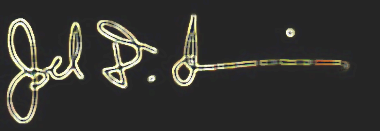 Between the World and Me by Ta-Nehisi Coates Between the World and Me by Ta-Nehisi CoatesMy rating: 5 of 5 stars In turns brilliant, bloody, and bold, Between the World and Me by Ta-Nehisi Coates should be mandatory reading for all high school and college students. The book, written in the form of a letter from Coates to his adolescent son, touches upon a variety of topics, both subtle and not-so-subtle: racism, police brutality, racial profiling, historical inequity, and a variety of other sociological phenomenon. Is this an easy read? No, not by any means. Is it vitally important for understanding racism and race relations in modern America? The answer is a resounding YES. With obvious similarities to other revelatory books like Isabel Wilkerson's Caste: The Origins of Our Discontents and the Jason Reynolds/Ibram X. Kendi collaboration, Stamped: Racism, Antiracism, and You , Between the World and Me is an eye-opening examination of what it means to be black in modern America. Ta-Nehisi Coates is a bold, eloquent storyteller, relating his own personal experiences as a Gen-X American and tying those life events into the broader tapestry of American history. As comes with the territory, the subject matter is heavy and heartbreaking. Coates is not concerned with sugarcoating trauma for the Fox News crowd: his observations are blunt and brutally honest. In fact, the book begins with Coates relating an experience being interviewed by "the host of a popular news show" whose cynical perspective on race inspires Coates to write that "no machinery could close the gap between her world and the world for which I had been summoned to speak." That division - between races, between perspectives, between worlds - is a recurring theme in the book: an intellectual, psychological, and emotional gap that Coates describes as nearly insurmountable. It might seem bleak or nihilistic, but Coates refuses to embrace the fallacy of a post-racial "happily ever after." Alas, the real world is not a fairy tale. Much of Between the World and Me focuses on "black bodies" - that is, to say, the physical and physiological suffering of black Americans. Frequently, his book returns to this theme, examining the ways in which the African-American community has suffered at the hands of "the Dreamers" (a.k.a. "those who would call themselves white"). Periodically, his prose incorporates corporeal metaphors and symbolism. As he writes, “racism is a visceral experience... it dislodges brains, blocks airways, rips muscle, extracts organs, cracks bones, breaks teeth. You must never look away from this. You must always remember that the sociology, the history, the economics, the graphs, the charts, the regressions all land, with great violence, upon the body.” Additionally, Coates rejects the tenets of religious institutions, presenting himself as an atheist: “I believed, and still do, that our bodies are our selves, that my soul is the voltage conducted through neurons and nerves, and that my spirit is my flesh.” This existential view of the world disavows the promise of a postmortem paradise, and reminds the reader that "Our moment is too brief. Our bodies are too precious." All we have is here and now, Coates explains, which means we can't wait for others to save us from the perils of a cruel world. Coates is undoubtedly an eloquent, artful writer, capable of conjuring timeless truths with his poetic prose. There are far too many "golden lines" in this book to include in one simple review; suffice to say, Coates is an incredibly talented writer with thought-provoking reflections embedded in every single page. Selfishly, I loved his perspective on libraries: “I was made for the library, not the classroom. The classroom was a jail of other people’s interests. The library was open, unending, free.” At another point, Coates writes, “I was learning the craft of poetry, which really was an intensive version of what my mother had taught me all those years ago—the craft of writing as the art of thinking. Poetry aims for an economy of truth—loose and useless words must be discarded, and I found that these loose and useless words were not separate from loose and useless thoughts.” Although it's impossible to extricate his subject matter from his writing style, Coates is a poet whose words are more potent than any superhero's secret powers. Racism is always a challenging, maddening, and overwhelming subject to discuss with your children. Still, though, Coates desires a better world for his son. As he writes at one point, “You are growing into consciousness, and my wish for you is that you feel no need to constrict yourself to make other people comfortable.” Regardless of how far America has come in the last 100 years, we still have lifetimes of growth ahead of us. It's fitting that Coates uses a personal metaphor to discuss the interlocking concepts of race and racial disparity: "race is the child of racism, not the father." As a father himself, Ta-Nehisi Coates understand the importance of loving guidance. Let's hope that our own childrearing produces a new, wiser generation that fights against the evils of racism and prejudice. Only then can we break down the barriers between the world and its children. View all my reviews
0 Comments
Leave a Reply.AuthorMild-mannered librarian by day… and a mild-mannered rock & roller by night. Archives
August 2023
Categories |

 RSS Feed
RSS Feed
